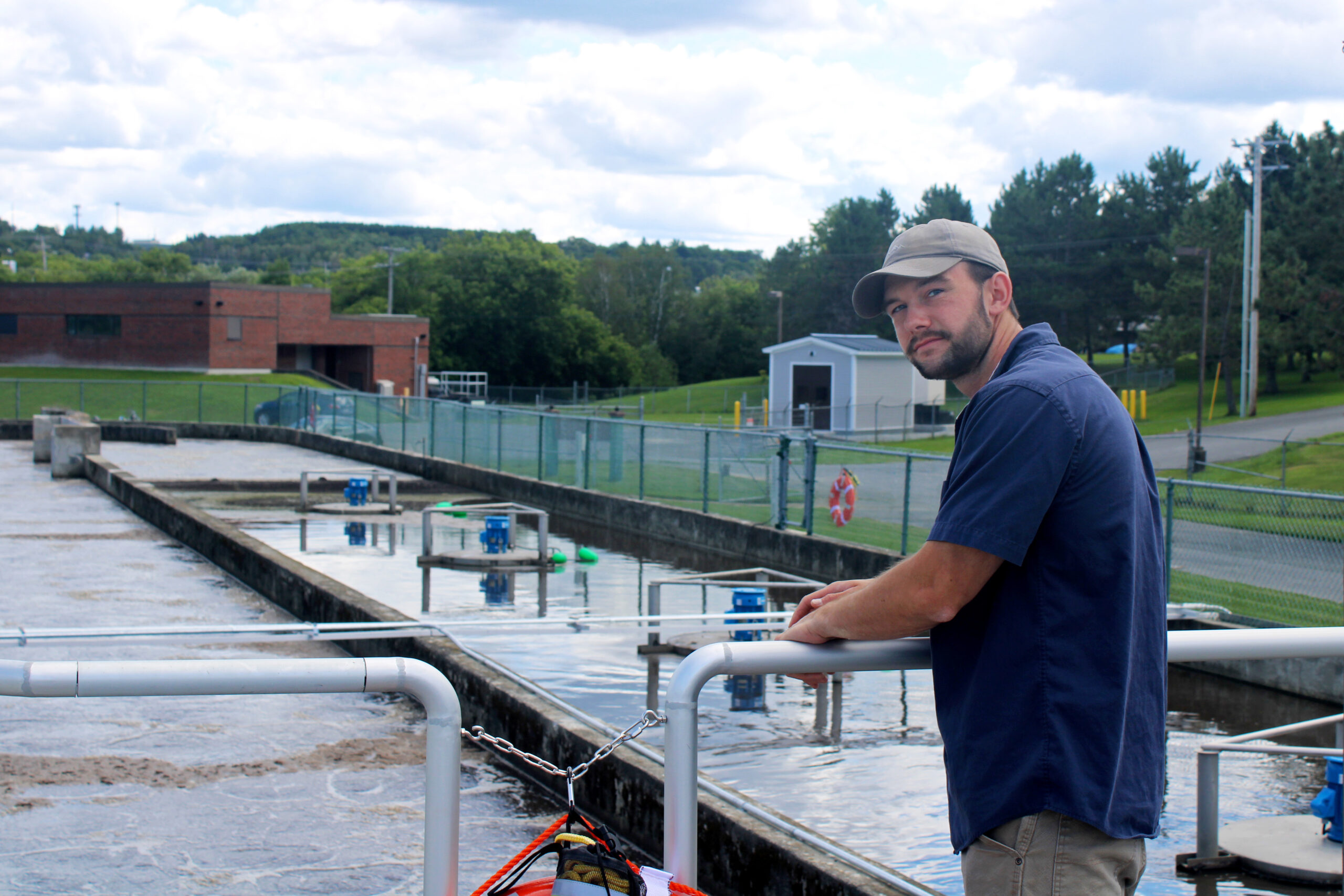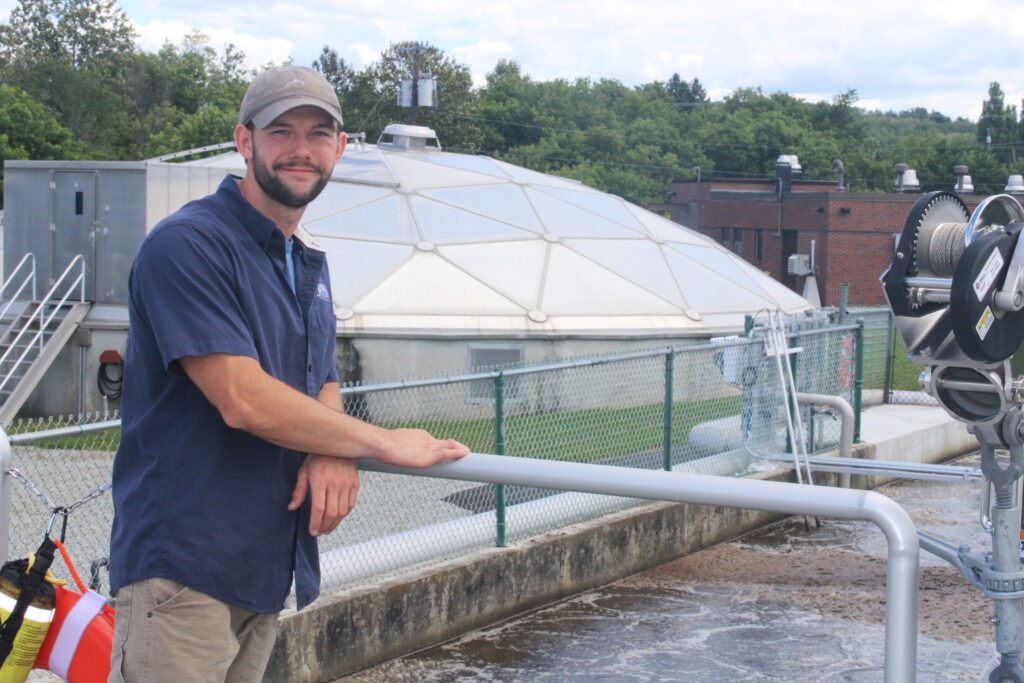
A $15.6 million project in Presque Isle has eliminated the dumping of toxic sludge in local fields.
Sludge often contains harmful “forever chemicals,” known health hazards that can leach into soil, crops and water. In 2019, testing revealed unacceptable levels of one of those chemicals in fields owned by the Presque Isle Utilities District.
Presque Isle was the only place left in Maine that still dumped all of its wastewater solids in fields. Now that the district’s multimillion-dollar project is done, its treatment plant dries out sludge and disposes of it at a landfill, eliminating a source of danger to nearby residents and the environment.
“No more sludge has been spread. We’ve had no complaints since then,” said Ross McQuade, Presque Isle Utilities District superintendent.
The district used to truck sludge — solids left after wastewater was treated — to fields or lagoons it owned near the James and Lathrop roads. Four years ago, 500,000 gallons of toxic sludge sat at 12 fields.
Neighbors who lived on the remote roads near those sites worried about dangerous chemicals getting into their water. The Maine Department of Environmental Protection tested soil in the fields.
The department had set a limit of 5.2 parts per billion for perfluorooctanesulfonic acid, or PFOS, in soil. Nine of Presque Isle’s fields tested from 7.6 parts per billion to 27.8 parts per billion. The DEP ordered the district to stop spreading sludge.
Later in 2019, the department banned sludge spreading statewide as concerns mounted about the health hazards of PFOS and per- and polyfluoroalkyl substances, known as PFAS. The substances don’t break down easily and can build up in the environment, people and animals, according to the Maine DEP’s website.

The chemicals are used widely in things like non-stick cookware, fire suppression foam, carpeting, heat-resistant packaging and even personal care products. They can potentially cause health effects like fertility and pregnancy problems, impaired child development, reduced immune response and even some cancers, the website states.
Unable to spread the sludge anymore, Presque Isle accelerated plans to install a dewatering, or drying, system. The district applied for grant funding and increased residential rates to help cover costs.
Funding came through in 2020: a $6 million rural development grant and a $9.6 million loan, both from the U.S. Department of Agriculture. The upgrades would satisfy two 2019 Maine DEP orders: one to expand biological treatment and the other to halt sludge spreading.
Phase one involved installing a centrifuge at the Dyer Street treatment plant, McQuade said.
“This machine spins at a high rotation, spins the solids to the outside and separates them from the water,” he said. “That creates a thickened sludge.”
Presque Isle takes that waste to the Tri-Community Landfill in Fort Fairfield, he said.
The project’s second phase finished earlier this year has nearly doubled the amount of waste water the plant processes, from 5.2 million gallons a day to 9.6 million.
Crews added more processing equipment and larger pumps to expand how much water they can treat, McQuade said. They also added another clarifier.
A clarifier works by settling solid sediment that is suspended in the wastewater, according to the U.S. Environmental Protection Agency. The sediment, or sludge, is removed from the bottom of the clarifier.
The upgrades replaced the inner workings in much of the treatment plant, said Chief Wastewater Operator Caleb Ward. Some sections of the facility were last updated in the 1980s.
With more capacity, the plant meets DEP guidelines and can handle future water flow increases, he said.
“The biggest and most important thing for us is that the upgrade project brought our facility into compliance without any violations whatsoever,” Ward said.
This summer’s $1.7 million repair project is repairing water and sewer pipes in the Maple, Dupont and University street areas, some of which were approximately 100 years old. The work was funded through a $925,000 DEP grant and $300,000 in city American Rescue Plan Act funds, as well as a loan, McQuade said.
More help may be on the way. U.S. Sen. Susan Collins announced last month that the appropriations committee had approved $2.4 million for the district in 2024. Funding requests must pass both the U.S. House and Senate before being signed by the president.
McQuade hopes the district will get the boost. Even though high labor and material costs will eat up the money quickly, it will help staff keep debt manageable and still sustain the city’s water system.
The district still owns the fields it used for dumping, now covered with vegetation. The DEP conducts periodic testing and will advise what needs to be done at the sites, McQuade said.
“We’re waiting for science to catch up with the best means to deal with [the fields],” he said.







